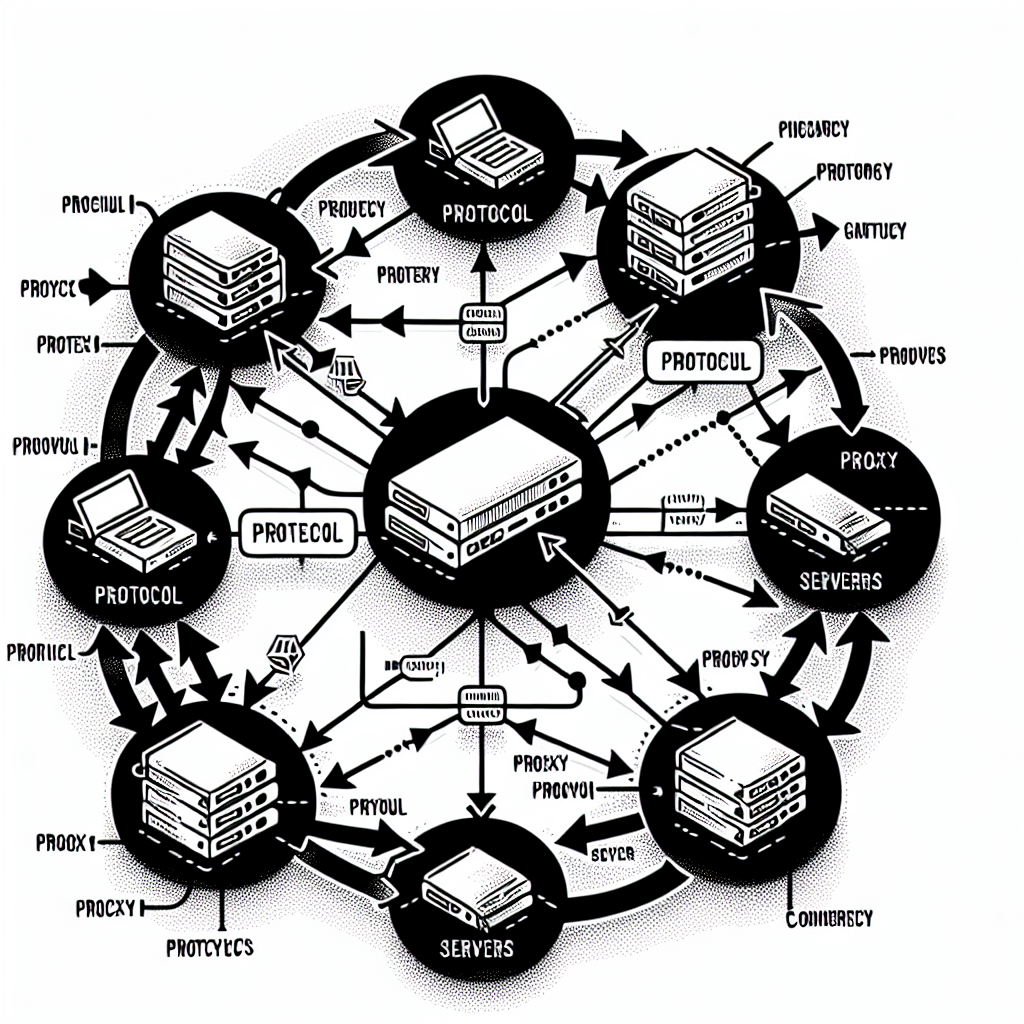What is Protocol?
In the context of proxy usage, a protocol is a set of rules or standards that define how data is transmitted over a network. Think of it as a common language that helps different devices and software communicate effectively. Some common protocols you might hear about include HTTP (HyperText Transfer Protocol), HTTPS (HTTP Secure), FTP (File Transfer Protocol), and SOCKS (Socket Secure).
How Does It Work?
When you use a proxy, your internet traffic is routed through the proxy server before reaching its final destination. The protocol determines how this data is sent and received. For example, when you try to visit a website:
- Your device sends a request to the proxy server using a specific protocol (like HTTP).
- The proxy server then forwards your request to the website, also using that protocol.
- The website responds back to the proxy server, which then sends the response back to your device using the same protocol.
This process ensures that data is properly formatted and understood by all parties involved.
Why is it Important for Proxy Users?
Understanding protocols is crucial for proxy users because:
-
Compatibility: Different proxies support different protocols. Knowing which protocol your proxy uses ensures that you can access the content you need without issues.
-
Security: Some protocols, like HTTPS, provide encryption, which helps protect your data from eavesdroppers. If you're using a proxy for security reasons, it's important to choose one that supports secure protocols.
-
Performance: Different protocols can affect the speed and efficiency of data transfer. For instance, a lightweight protocol like SOCKS might be faster for certain applications compared to HTTP.
Simple, Real-World Example
Imagine you’re sending a letter (your internet request) to a friend (the website) through a courier service (the proxy).
-
Protocol: The rules of the courier service determine how your letter is sent, including how it should be packaged, labeled, and delivered.
-
How It Works: You write your letter and give it to the courier. The courier takes it to your friend's house, following the service's rules to ensure it gets there safely.
-
Importance: If you were using a cheap courier service that doesn’t handle fragile items well (like sensitive data), your letter could get damaged or lost. Choosing a reliable courier (proxy) that uses a secure and efficient service (protocol) ensures your letter arrives safely and quickly.
In summary, understanding protocols in proxy usage helps you choose the right tools for effective, safe, and efficient communication over the internet.


Comments (0)
There are no comments here yet, you can be the first!